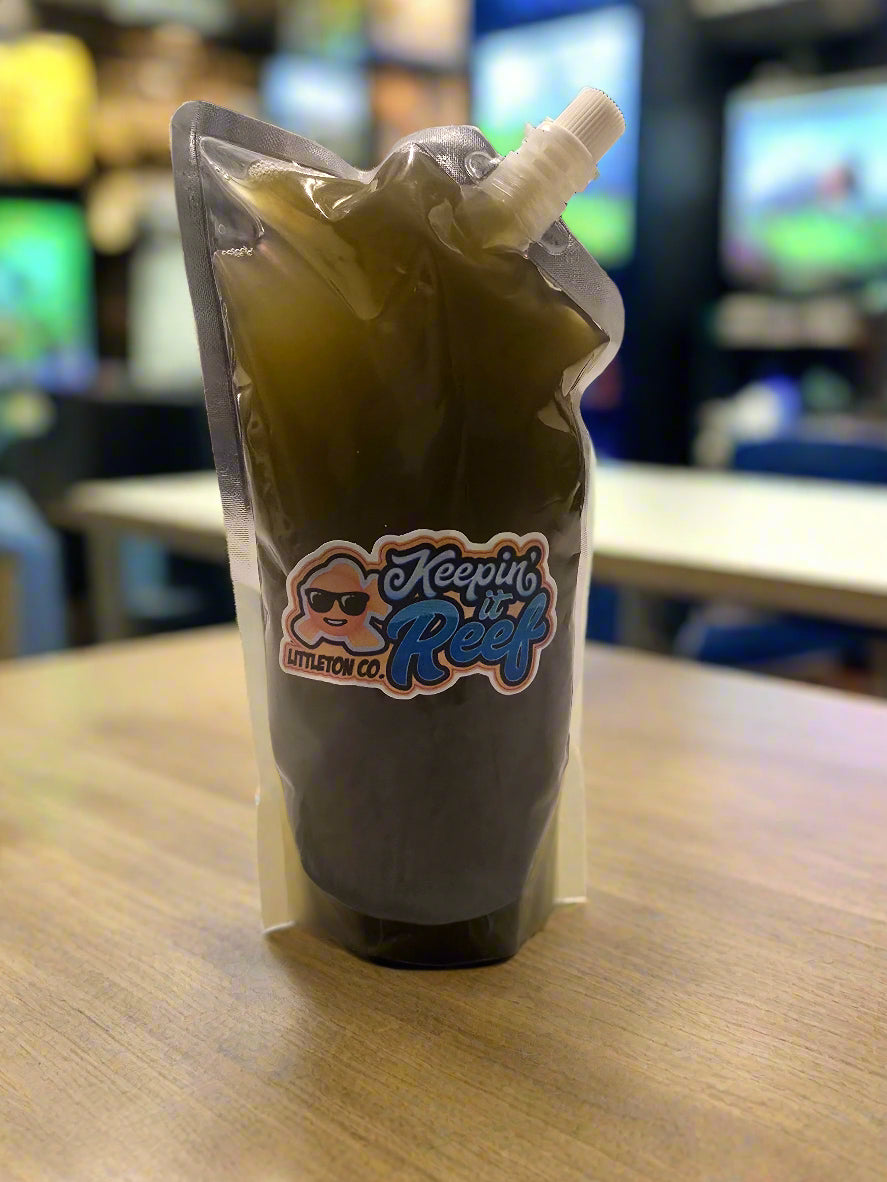Keepin' it Reef
Locally Grown Phytoplankton, 16oz
Locally Grown Phytoplankton, 16oz
Couldn't load pickup availability
Phytoplankton for Marine Aquariums
Description:
Phytoplankton are microscopic, plant-like organisms that form the foundation of the marine food chain. These tiny algae are rich in essential nutrients like omega-3 fatty acids, amino acids, and vitamins, making them a valuable addition to saltwater aquariums. They serve as a natural food source for filter-feeding organisms, including corals, clams, copepods, and other invertebrates.
Benefits of Phytoplankton in a Marine Aquarium
✅ Enhances Coral Growth & Health
Phytoplankton provide essential nutrients that promote the growth, coloration, and resilience of corals, helping them thrive.
✅ Feeds Filter Feeders & Microfauna
Many marine organisms, such as sponges, feather duster worms, and bivalves, depend on phytoplankton as a primary food source.
✅ Boosts Copepod Populations
Copepods, amphipods, and other beneficial microfauna feed on phytoplankton, which helps establish a thriving, self-sustaining ecosystem in your tank.
✅ Improves Water Quality
Phytoplankton can help control excess nutrients by competing with nuisance algae for available resources, leading to a more balanced and stable aquarium.
✅ Supports a Natural Ecosystem
By introducing phytoplankton, you're mimicking natural oceanic food chains, which leads to healthier and more active marine life.
How to Dose Phytoplankton in Your Aquarium
✅ Start Slow – Begin with small doses (5-10 mL per 10 gallons) and gradually increase as your tank adapts.
✅ Feed at Night – Many corals and filter feeders extend their feeding tentacles at night, making it the best time to dose.
✅ Turn Off the Skimmer Temporarily – Protein skimmers can remove phytoplankton before your tank inhabitants have a chance to consume them. Turn it off for about 30-60 minutes after dosing.
✅ Refrigerate Live Phytoplankton – If using live phyto, store it in the fridge and shake the bottle before each use to ensure an even mix of cells.
✅ Use Regularly – A consistent dosing schedule (2-4 times per week) ensures a steady supply of nutrients and maintains a balanced ecosystem.
Share


